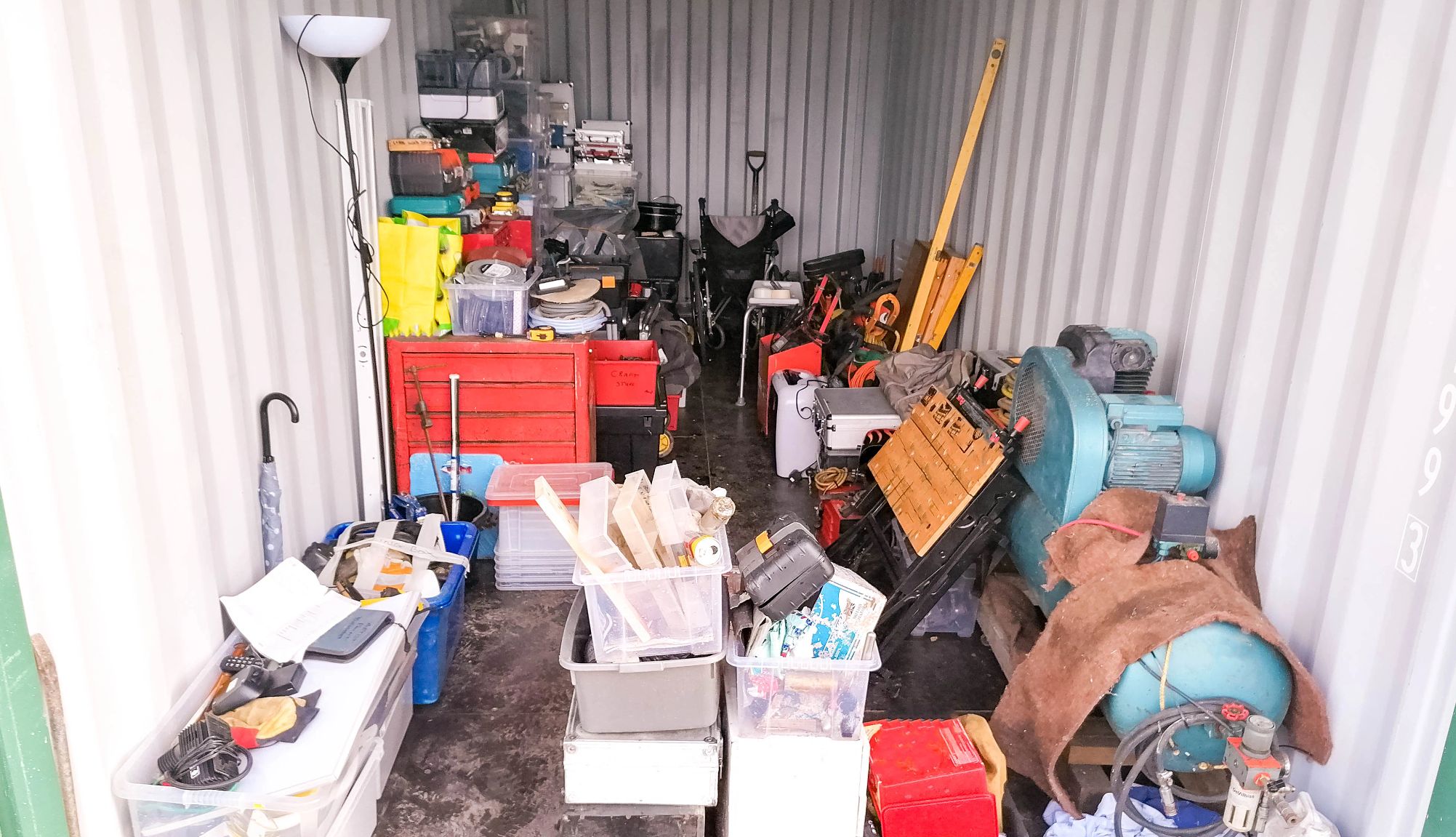
How to Stop Paying for Storage
- Select a language for the TTS:
- UK English Female
- UK English Male
- US English Female
- US English Male
- Australian Female
- Australian Male
- Language selected: (auto detect) - EN
Play all audios:
Renting a storage unit can mean that out of sight means out of mind. You are more likely to hang on to stuff you don’t need when you don’t see it in your regular living space. Shutterstock
Facebook Twitter LinkedIn
To keep or not to keep? It’s a dilemma older adults face with a lifetime of accumulated belongings. But when the stuff has spilled outside your living space and into a storage unit, it’s
time for a hard assessment.
According to move.org, the average storage unit in the United States costs about $180 per month. That’s more than $2,000 a year you could save through decluttering. “When you add it up over
time, it’s a lot of money,” says Susan Blumenfeld of Boston-based New Roots Move Management. Some of her clients have spent $25,000 over a decade for off-site storage.
Another issue with renting a storage unit — or even storing possessions in a basement, attic or garage — is that out of sight means out of mind. You are more likely to hang on to stuff you
don’t need when you don’t see it in your regular living space. But eventually, you or your heirs will have to deal with it, says Seattle-based professional organizer Julianna Poplin. So why
wait?
Here, Blumenfeld and Poplin weigh in on commonly stored items.
FurnitureDon’t hang on to furniture indefinitely, thinking someone might need it someday. “Obviously, if it’s in a storage unit, nobody is using it,” Poplin says. So give family members the
ultimatum: If you want it, come and get it. If they have no room for it now, let them pay for the storage. They might think differently about it when money is on the line. “If nobody wants
it, let it go,” Poplin says. Some vintage furniture, especially the ever-popular mid-century modern styles, might fetch a nice price at a consignment shop or in a private sale. And don’t
fall victim to sentimentality. “If it’s ultra-special, why isn’t it in your house?” Blumenfeld asks.
Sports equipmentIf the gear is for a sport you are currently engaged in — say, every winter you go on ski trips — then store the stuff. If not, sell it off. “That bike that you spent $2,000 to $3,000 on
that you aren’t riding? You say ‘But I might ride it.’ But you’re not,” Blumenfeld says.
Photos“This is a very big issue,” Blumenfeld says. “Most likely, those are the only thing that matter in your life besides your family.” Digitizing them will save space, but that takes “an
inordinate amount of time; I don’t think people are gonna do it.” Blumenfeld suggests storing them at home in a fireproof file cabinet. Poplin advises taking some time to label the photos.
“What’s hard for people is to inherit boxes full of pictures of people they don’t know, so it doesn’t hold any meaning for them.”